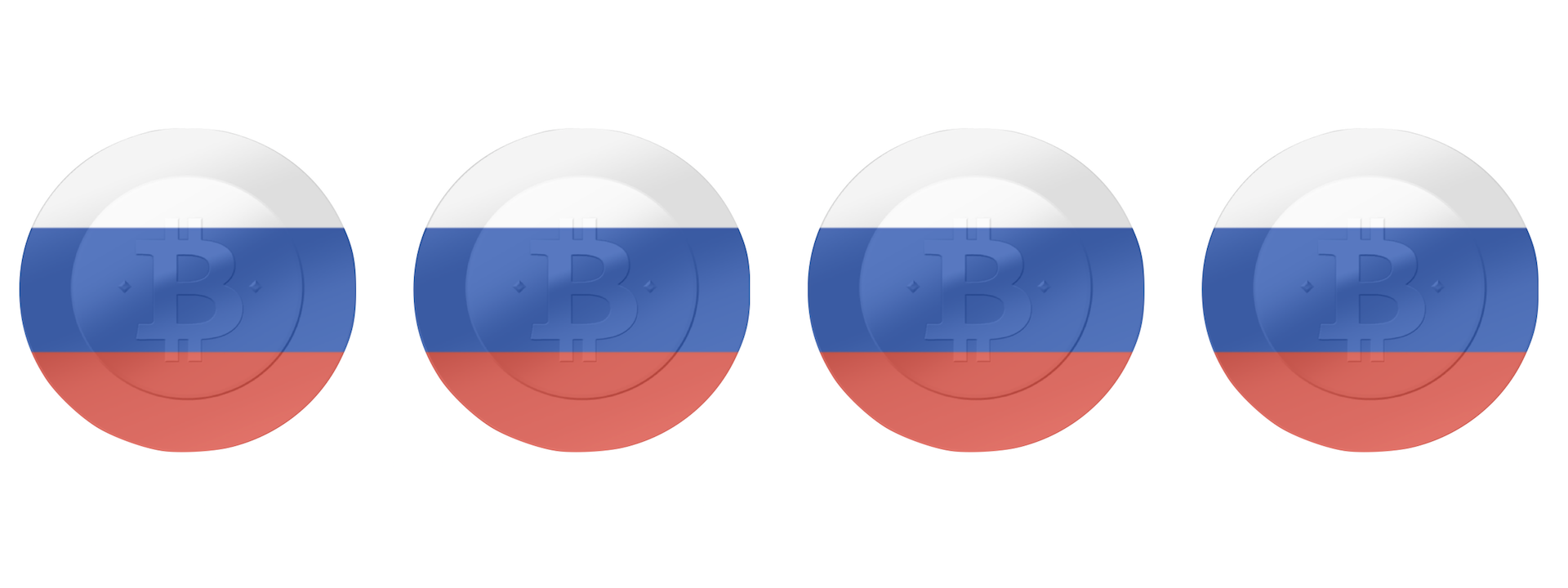#InfluenceForSale: Fringe Media Highlights New Bearish Cryptocurrency
A brief look into Russia’s latest monetary innovation — the national cryptocurrency
#InfluenceForSale: Fringe Media Highlights New Bearish Cryptocurrency

A brief look into Russia’s latest monetary innovation — the national cryptocurrency

On October 15, Russian Minister of Communication Nikolay Nikiforov announced Russian President Vladimir Putin’s endorsement for their country’s latest monetary gamble — a national cryptocurrency referred to as CryptoRuble. CryptoRuble is reportedly Russia’s response to tax evasion using digital currencies. @DFRLab remains bearish on both the source of CryptoRuble and its market potential.
The CryptoRuble comes with a requirement for users to pay a 13 percent tax on trade earnings to the Russian government. If users cannot explain the source of their crypto currency, a 13 percent tax will be levied on their cyber purse.
Cryptocurrency is a digital currency using decentralized technology that allows users to bypass conventional monetary institutions, like state organs and banks. They run on blockchain, a public ledger of all cryptocurrency transactions. Normally, cryptocurrency is created through a process called mining — solving complex mathematical problems to generate units of cryptocurrency. Blockchain is a public ledger for cryptocurrency because everyone can enter as a “miner”, which creates value. By design, cryptocurrencies are anonymous.
CryptoRuble is not a typical cryptocurrency: it cannot be mined, it’s tied to a fiat currency — Russian ruble, it is issued and tracked by the government, hence it’s not anonymous, and it will be fully controlled by Russian authorities.
Because of its close relationship to the state, CryptoRuble was not received well by industry experts. Devin Coldewey of TechChrunch and cryptocurrency expert Jacob Eliosoff posited the CryptoRuble will lack much of the draw that many crypto enthusiasts see in cryptocurrency. Eldiyar Muratov, president of the Castle Family Office, argued CryptoRuble “will not be a cryptocurrency in the usual sense, but rather another form of the ruble.”
Luis Cuende, a well-known digital innovator and entrepreneur commented:
“The CryptoRuble seems to go completely against the basic principle of cryptocurrencies and decentralization. Trustless, decentralized public blockchains are the premise of cryptocurrencies that make them resistant to corruption, manipulation, and governmental abuse. National cryptocurrencies cannot offer advantage over traditional currencies without these essential properties, except maybe for better settlement times.”
It may be a hard sell, nevertheless Kremlin-owned and Kremlin-aligned media launched an international media campaign in support of the CryptoRuble.
One of the most notable examples was the amplification of an article written by Tom Luongo on his blog titled “Russia’s Crypto-Ruble Just Changed the Game”. Tom Luongo appears to be a pro-Kremlin economic and political analyst and is listed as a contributor on Russia-Insider, which is a pro-Kremlin propaganda outlet.
In the article, Luongo does not hold back on praise for Putin and the Kremlin. He wrote:
“Vladimir Putin is very much a law and order kinda guy. If you watch Putin operate in the public arena he always does so with an eye towards the law.”
“Putin is a smart man with an excellent team around him. Moves like this are made in response to aggressive moves made by the U.S. to starve his country of capital, i.e. John McCain’s sanctions”
“Given the tenuous situation in the global financial and political systems, Russia’s stable government is an asset”.
The article provides little economic analysis, idolizes Putin and the Russian economy, and echoes the Kremlin narrative that the United States sanctions on Russian entities are aggressive.
Nevertheless, the article was picked up and re-published by fifteen pro-Kremlin and fringe media outlets, including ZeroHedge, Trump Franchise, Russia Insider, the Russophile, and Sott. Most of these websites are well-established pro-Kremlin propaganda outlets, on which @DFRLab has reported previously.

A similar article was published by another pro-Kremlin media outlet The Duran, run by a Moscow-based Vladimir Rodzianko. The article was titled “Crypto-Rouble: Russia to launch first state sanctioned cryptocurrency in the world”. In the article, the CryptoRuble is lauded as a way to overcome foreign sanctions on Russia imposed for Russia’s annexation of Crimea and country’s military actions in Ukraine. He wrote:
“At the same time, if in the eyes of the Russian government, a CryptoRouble is as legitimate a currency as the Rouble, it will allow wholesalers, retailers and possibly even independent financial traders to use the CryptoRouble to avoid the sanctions against Russian banks which their own anti-libertarian western governments have imposed.”
The article was not shared as widely, but copies of it can be found on TheRussophile.org, Windowtorussia.com, beforeitsnews.com, mintpressnews.com, and knowledgeisgood.org.
Russian state-funded media outlet –Sputnik — also published an article flattering the CryptoRuble and calling it a landmark development, making “Russia the very first government in the world to official pursue virtual tender”. That is not true, China developed and started testing its own cryptocurrency back in June 2017.
Neither Tom Luongo, nor the Duran or Sputnik’s articles mention any shortcomings of the CryptoRuble, of which there are many, including its value being tied to the ruble and the lack of decentralization — the key feature of a cryptocurrency.
Here again, the CryptoRuble lacks many of the key aspects of conventional cryptocurrency — anonymity and decentralization. This case study, therefore, shows how a network of Kremlin-funded and Kremlin-aligned fringe media outlets can be used not only to spread disinformation and divisive messages, but also to advertise Russia’s financial digital assets.
Follow along for more in-depth analysis from our #DigitalSherlocks.

